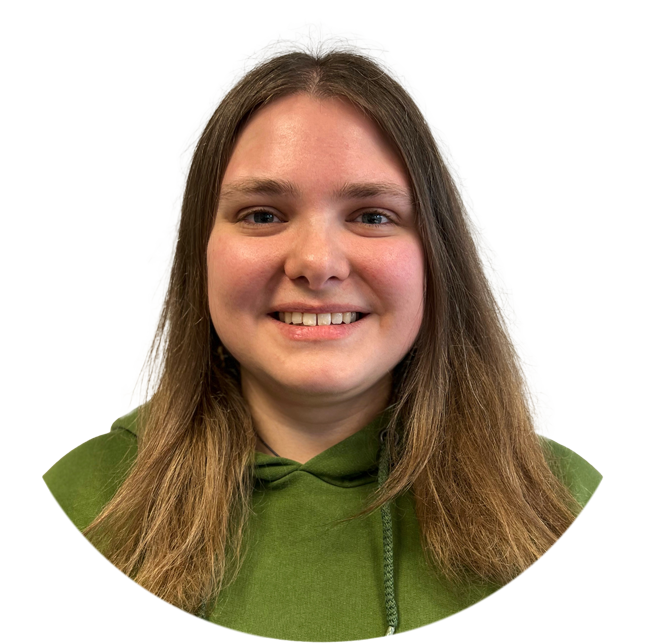
Felicia Meusel M.Sc.
-
Phone:+49 371 531-38684
-
Email:
-
Room:Straße der Nationen 12, RAWEMA-Haus, 1/R214
Research interests
- Social cues in multimedia learning
- Influence of language variants on learning effectiveness (e.g. accent, dialect)
- Emotional Design
- Retrieval Cues & context-dependent Memory
- Personalization Principle
| since 02/2022 | Research Associate at the Professorship "Psychology of Learning with Digital Media" |
| 02/2022 – 03/2023 | Research Associate at the Professorship "Psychology of Learning with Digital Media" in the CRC Hybrid Societies |
| 03/2020 – 02/2021 | Research Assistant at Eberhard Karls University of Tübingen, Research Group Clinical Psychology and Psychotherapy |
| 07/2021 | Master of Science in Cognitive Science at Eberhard Karls University of Tübingen Master Thesis: The Effects of Negation on Attitude Formation |
| 09/2016 | Bachelor of Science in Cognitive Science at Eberhard Karls University of Tübingen Bachelor Thesis: The Influence of the Future Relevance of Learned Information on their Consolidation during Sleep and its long-term Effects |
- Krieglstein, F., Jansen, S. , Meusel, F., Scheller, N., Schmitz, M., Wesenberg, L., & Rey, G. D. (2025). Does the context-dependent memory effect also apply to fonts in text-based learning? [Paper presentation]. 21th Biennial EARLI Conference. Graz, Austria.
- Meusel, F., Wesenberg, L., Schneider, S., & Rey, G. D. (2024). Investigating the effects of the instructor’s accent on non-native learners in multimedia learning [Paper presentation]. Earli SIG 6 & 7 Conference, Tübingen, BW, Germany.
- Meusel, F., Wesenberg, L., Schneider, S., & Rey, G. D. (2024). Investigating the effects of the instructor’s accent on non-native learners in multimedia learning [Paper presentation]. Earli SIG 6 & 7 Conference, Tübingen, BW, Germany.
- Meusel, F., Scheller, N., & Rey, G. D. (2023). Investigating Content-Relevant Background Color as Retrieval Cue in Multimedia Learning [Poster presentation]. 20th Biennial Conference of the European Association for Research on Learning and Instruction, Thessaloniki, CM, Greece.
- Meusel, F., Scheller, N., Rey, G. D., & Schneider, S. (2024). The influence of content-relevant background color as a retrieval cue on learning with multimedia. Education and Information Technologies, 29(12), 16051-16072.
- Krieglstein, F., Jansen, S., Meusel, F., Scheller, N., Schmitz, M., Wesenberg, L., & Rey, G. D. (2024). Exploring fonts as retrieval cues in text-based learning. Acta Psychologica, 251, Article 104606.
- Krieglstein, F., Meusel, F., Rothenstein, E., Scheller, N., Wesenberg, L., & Rey, G. D. (2023). How to insert visual information into a whiteboard animation with a human hand? Effects of different insertion styles on learning. Smart Learning Environments, 10, Article 39.
- Educational Psychology Review (EDPR)
- Heliyon (Cell Press)
- Journal of Veterinary Medical Education (JVME)
- Education and Information Technologies (EAIT)
- Learning and Instruction (JLI)
Back to overview
